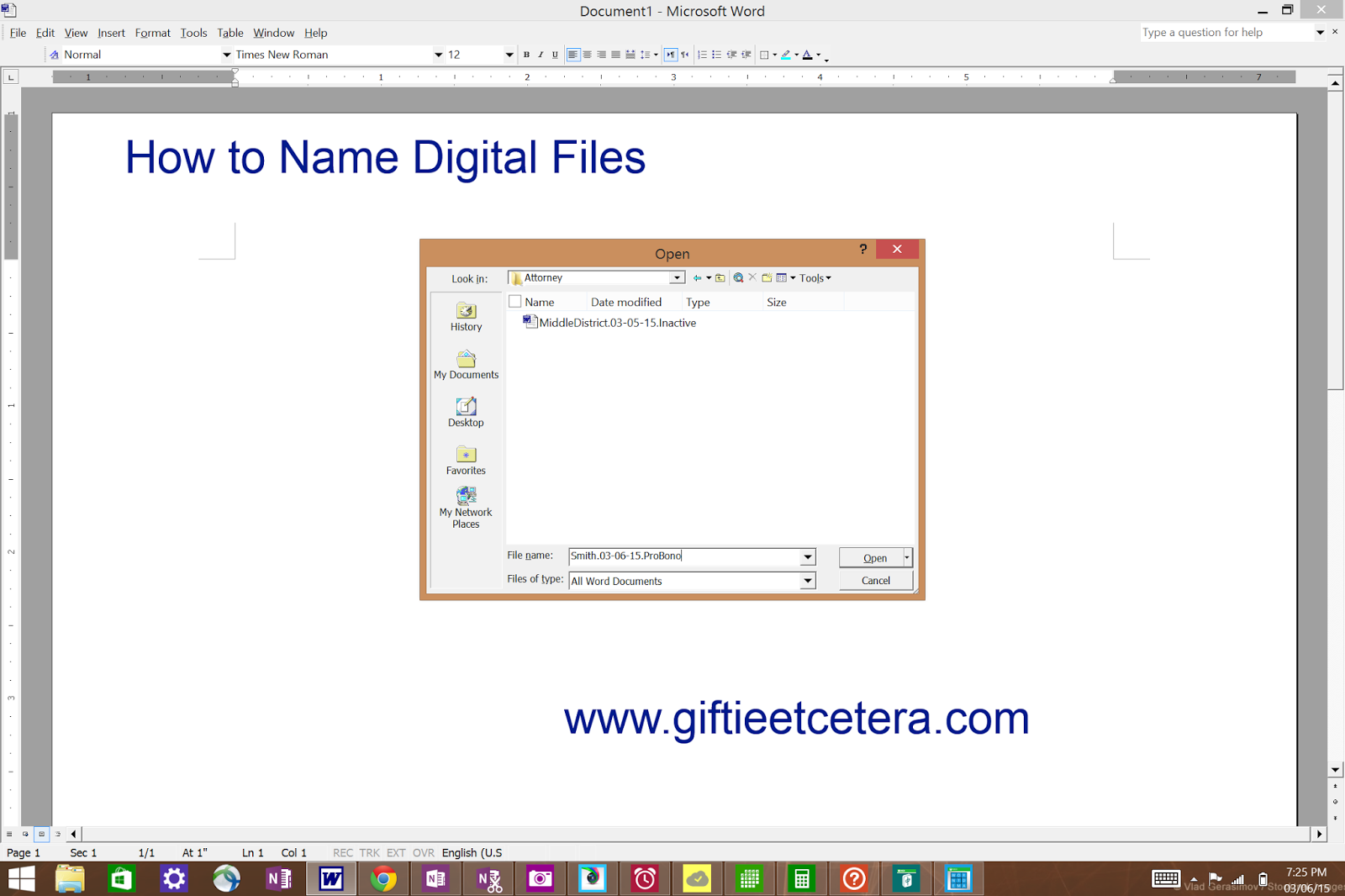Since digital files are searchable, I can find my resume' in seconds.
I can also find out that I have ten different versions of it and that I have no idea of which one is for teaching and which one is for submitting for a writing assignment.
To solve this, I adopted a simple naming system for all files. (Note: I still use folders to divide stuff by topic, much like I do my physical files.)
There are 3 parts to my file names:
1. NAME
If the file is a document sent to me, the name of the sender goes here. If I am sending the document away, the recipient's name gets listed. Basically, whatever name other than my own that is associated with the document is listed.
I use a person's name whenever possible, but as seen in the example above, I sometimes use the organization, if no name is available.
EXCEPTION: Templates get the word "Template" as this name.
2. DATE IN STANDARD FORMAT
I write the date as month-day-year. I use two numbers for each spot.
Example: 02-07-06 or 12-09-15
The reason for the standard format is so that the computer automatically organizes my documents, pictures, and other files in order by individual, followed by date.
3. TOPIC
I make sure to put enough information about the topic in this part of the file name.
If I send Jane Samuel a letter on February 1, 2015 about the water heater, the file name is Samuel.02-01-15.WaterHeater.
If your digital files aren't organized, pick a folder per week and rename those files, one week at a time!
I can also find out that I have ten different versions of it and that I have no idea of which one is for teaching and which one is for submitting for a writing assignment.
To solve this, I adopted a simple naming system for all files. (Note: I still use folders to divide stuff by topic, much like I do my physical files.)
There are 3 parts to my file names:
1. NAME
If the file is a document sent to me, the name of the sender goes here. If I am sending the document away, the recipient's name gets listed. Basically, whatever name other than my own that is associated with the document is listed.
I use a person's name whenever possible, but as seen in the example above, I sometimes use the organization, if no name is available.
EXCEPTION: Templates get the word "Template" as this name.
2. DATE IN STANDARD FORMAT
I write the date as month-day-year. I use two numbers for each spot.
Example: 02-07-06 or 12-09-15
The reason for the standard format is so that the computer automatically organizes my documents, pictures, and other files in order by individual, followed by date.
3. TOPIC
I make sure to put enough information about the topic in this part of the file name.
If I send Jane Samuel a letter on February 1, 2015 about the water heater, the file name is Samuel.02-01-15.WaterHeater.
If your digital files aren't organized, pick a folder per week and rename those files, one week at a time!

5 comments:
I needed this today! Thank you for sharing your ideas. Do you put the dot after each word for the computer to file it? (your example Samuel.02-01-15.waterheater.)
for date I reverse the order to year-month-day, then things stay in chronologic order.
Very timely. I'm transferring stuff to a new computer, and am taking this opportunity to do some organizing. Thank you for this.
I also do year-month-day, as Anon above says then when you sort alphabetically they appear in date order. Also I name folders that way. For example for a set of quarterly meetings, I have a separate folder for each to store minutes, papers, etc. They're named YYYY-MM MONTH, e.g."2015-03 March". Thus they're organised chronologically but I don't have to think which month number do I need, I can just read "March".
G.
Great tips!
I do put dots like that.
Post a Comment